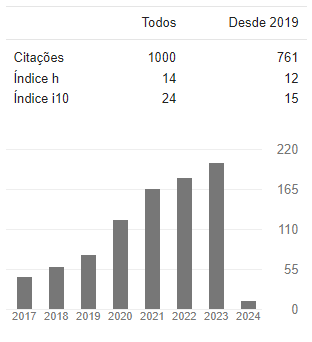The LieCal Project and Its Investigation of Problem-Solving Strategies as a Measure of Longitudinal Curricular Effects on Students’ Learning
Palavras-chave:
LieCal Project, Problem Solving, Curriculum Effect, Student LearningResumo
This paper presents a summary of the important middle school findings from the LieCal Project (Longitudinal Investigation of the Effect of Curriculum on Algebra Learning) and examines in detail the longitudinal effects of a middle school reform mathematics curriculum on students’ open-ended problem solving in high school. Using assessment data from our large, longitudinal LieCal project, we compared the open-ended problem-solving performance and strategy use of high school students who had used the Connected Mathematics Project (CMP) in middle school with that of students who had used more traditional mathematics curricula. When controlling for sixth-grade state mathematics test performance, high school students who had used CMP in middle school had significantly higher scores on a multipart open-ended problem. In addition, high school students who had used CMP appeared to have greater success algebraically abstracting the relationship in the task.
Downloads
Métricas
Downloads
Publicado
- Visualizações do Artigo 168
- PDF downloads: 28


































































